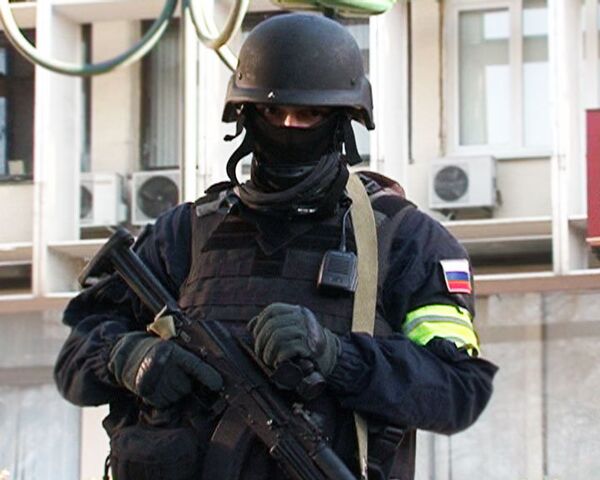Interview with Alexei Filatov, Vice President of the International Association of Veterans of the Antiterrorism Alfa Group
The fight against terrorism entered a new stage on September 11, 2001, but people continue to die in terrorist attacks a decade on. Can you give some examples of positive results and pinpoint where the main difficulties in this struggle lie?
The international community, in particular the Untied States, entered this new phase in 2001. But Russia did so back in 1995, when it encountered a new form of terrorism after 200 militants seized about 2,000 hostages in a hospital in Budyonnovsk. The situation was completely different from anything covered by the approved policy and rules governing hostage release operations.
Had you been trained in similar operations?
We couldn’t even imagine letting a hostage get hurt. In principle, our main goal was not to take down the terrorists, but to disarm and detain them. When storming airplanes, we were instructed not to damage the planes, for economic reasons. We often used special weapons, such as non-lethal weapons, not capable of piercing the plane’s surface, and some officers did not use live ammunition, carrying guns for intimidation purposes and instead fighting terrorists hand to hand.
The Budyonnovsk hostage crisis in 1995 was the first of its kind. No one in power was prepared to assume responsibility for the possible deaths of innocent civilians. It was a watershed moment that marked a new stage in and a new approach to the fight against terrorism. It forced us to review our approaches, equipment, tactics, recruitment and training rules, and psychology.
But the number of terrorist attacks has not decreased. On the contrary, it has grown, especially recently.
We, in Russia, are waging a war on terror, although no one has admitted this openly. We neutralize and kill terrorists, and they repay us in kind, by killing innocent civilians. This is a war, but when we report that we have detained or disarmed somebody, found a weapons cache, or killed someone on the federal wanted list, people take it for granted.
They should know that we are not dealing with ordinary creeps or drug addicts, but with organized bandit groups. By hitting them, we provoke a serious response from them. They don’t give up but strike back, honing their methods in each terrorist attack they stage.
Personally, I think that a terrorist attack is organized crime on a massive scale which has grave consequences for the country’s image. In fact, the terrorist attack is only part of the crime; it is its consequences that matter most. People lose confidence in their future, in their safety, which is one of their main requirements, and ultimately they lose confidence in the government, which is exactly what the terrorists want.
You have taken part in many special operations, including in Budyonnovsk. How do you manage to preserve your humanity in such situations?
This is a serious question. I think that those who have seen action, who have seen death and who have killed, grow up much faster than other people. Aged 30 or 40, they are as wise as sages. All the guys in our group have a degree, they know what they are doing and understand what they are risking. Ours is a very difficult line of service, but as the years go by, you come to look back on it as the happiest time in your life. The emotions, feelings, the relief you feel when the operation is over and you have saved someone’s life, are impossible to describe.
You said that the Alfa group is like a single organism, a group of people who trust each other completely. Have you ever experienced ethnic problems within the group?
I am originally from Moscow but I studied in Orel, where I shared a barracks with Uzbeks, Kazakhs, Belarusians and Ukrainians. And there were never any faith-based problems between us. I am a security professional and have never thought much about ethnicity or religion.
However, man does not live by bread alone. Economic reasons feature prominently, and both war and terrorism are rooted in economic problems. One ruble is not enough to urge people to do something, you need ten rubles. But there are clever people who pay one ruble and use religious precepts to make up for this lack of money.
Not everyone can understand what religion is by reading the Bible or the Quran, as you need a certain background. One can quote individual lines from any religious text to justify sending people into battle.
So I think the point at issue is not religion as such, although the growth of terrorism relies on religion. There is a grain of salt in the phrase, “Religion is the opium of the people.” We must not overlook religious aspects, but it would be wrong to say that some religions are good and others bad.
Thank you for your time.



